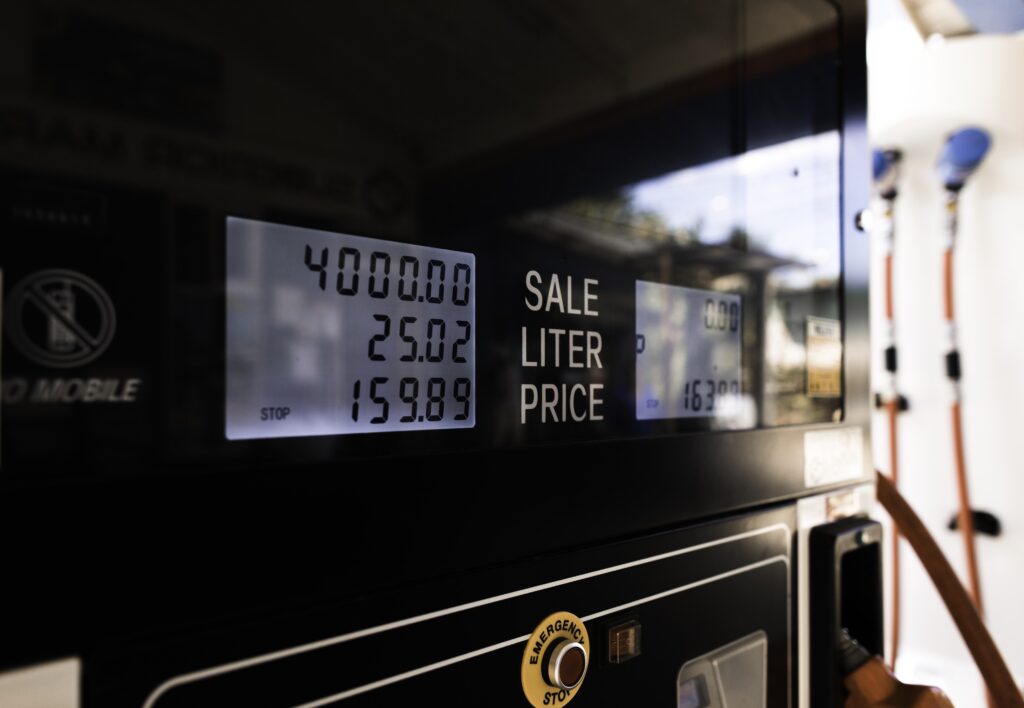Imagine driving down the open road, wind in your hair and the hum of your engine lulling you into a state of relaxation. But suddenly, you notice that your fuel gauge is dropping faster than usual, leaving you pondering what could be causing this unexpected loss in fuel efficiency. Could it be your exhaust system? Surprisingly, a faulty exhaust system can indeed affect your car’s fuel efficiency. In this article, we will explore the potential implications of a bad exhaust system on your beloved vehicle’s fuel economy, and how addressing this issue promptly can save you both money and headaches in the long run.
Understanding the Exhaust System
Purpose of the exhaust system
The exhaust system in a vehicle plays a vital role in the overall function and performance of the vehicle. Its main purpose is to safely expel the gases produced during the combustion process in the engine. Without an exhaust system, these toxic and harmful gases would be released directly into the atmosphere, causing pollution and posing a threat to human health.
Main components of the exhaust system
The exhaust system consists of several key components that work together to perform its function effectively. The main components include the exhaust manifold, catalytic converter, muffler, resonator, and the exhaust pipe. Each component serves a specific purpose in the overall functioning of the exhaust system.
Impact of a Properly Functioning Exhaust System on Fuel Efficiency
Improvement of engine performance
A properly functioning exhaust system can significantly improve the performance of the engine, which in turn can have a positive impact on fuel efficiency. When the exhaust system efficiently expels the gases produced during combustion, it allows the engine to run smoothly and operate at its optimal level. This improves the overall power and performance of the engine, resulting in better fuel efficiency.
Aid in maintaining optimal fuel efficiency
Another important impact of a properly functioning exhaust system on fuel efficiency is its ability to help maintain optimal fuel consumption. The exhaust system works in conjunction with other components of the vehicle, such as the fuel system, to ensure that the air-fuel mixture is appropriately balanced. This balance is crucial for efficient fuel combustion, reducing the amount of fuel wasted and maximizing fuel efficiency.
Ensuring harmful gases are safely expelled
An efficiently operating exhaust system ensures that harmful gases, such as carbon monoxide and nitrogen oxide, are safely and effectively expelled from the vehicle. If these dangerous gases were to accumulate within the vehicle, they could pose serious health risks to the driver and occupants. A properly functioning exhaust system prevents the build-up of such gases, contributing to a safer driving experience and overall fuel efficiency.

Common Problems with Exhaust Systems
Leaking exhaust
One of the most common problems with exhaust systems is leaks. Leaks can occur due to the deterioration of the exhaust pipe or damage to the joints and connections within the system. Not only do exhaust leaks affect the overall performance of the engine, but they can also have a detrimental impact on fuel efficiency. Leaks disrupt the proper flow of gases, leading to an imbalance in the air-fuel mixture and causing the engine to work harder and consume more fuel.
Exhaust blockages
exhaust blockages, whether due to a clogged catalytic converter, a damaged muffler, or other obstructions in the system, can severely impair fuel efficiency. A blockage prevents the smooth flow of exhaust gases, resulting in increased back pressure in the exhaust system. This back pressure forces the engine to work harder, reducing power and efficiency, and ultimately leading to higher fuel consumption.
Corrosion and damage
Over time, the exhaust system can suffer from corrosion and damage, especially in areas exposed to harsh weather conditions and road debris. Corrosion weakens the structural integrity of the components, making them more prone to damage and failure. When the exhaust system is compromised due to corrosion or damage, it can lead to inefficiencies in fuel combustion, negatively affecting fuel efficiency.
Faulty oxygen sensors
The oxygen sensors in the exhaust system play a crucial role in monitoring the level of oxygen in the exhaust gases. If these sensors become faulty or malfunction, they may provide inaccurate readings to the engine control unit (ECU). This can result in an improper air-fuel mixture, causing the engine to operate less efficiently and reducing fuel efficiency.
Identifying a Bad Exhaust System
Noise increase
One of the first signs of a bad exhaust system is an increase in noise. If you notice a louder and more aggressive exhaust sound coming from your vehicle, it could be an indication of a problem within the exhaust system. Leaks, blockages, or damaged components can all contribute to the increase in noise levels.
Smell of raw gases
Another noticeable sign of a bad exhaust system is the smell of raw gases inside and outside the vehicle. A properly functioning exhaust system should efficiently expel the gases produced during combustion, preventing them from entering the cabin. If you smell raw or unusual odors, it could signify an issue with the exhaust system that needs attention.
Decrease in power and acceleration
As the exhaust system plays a significant role in the engine’s performance, a bad exhaust system can lead to a decrease in power and acceleration. If you experience a noticeable loss of power or sluggishness in your vehicle’s performance, it may be a result of an exhaust system problem impacting the engine’s efficiency.
Check engine light
One of the most common indicators of a bad exhaust system is the activation of the check engine light on your vehicle’s dashboard. The onboard diagnostic system is designed to detect any issues within the vehicle, including problems related to the exhaust system. When the check engine light illuminates, it is essential to have your vehicle inspected by a qualified mechanic to identify and address any exhaust system problems.

How a Bad Exhaust System Harms Fuel Efficiency
Decrease in engine performance
A bad exhaust system directly affects engine performance, which in turn harms fuel efficiency. When components within the exhaust system are compromised or malfunctioning, it disrupts the proper flow and balance of exhaust gases. This imbalance results in decreased engine performance, making it work harder to produce power, consequently leading to increased fuel consumption.
Mismatched fuel-air mixture
The exhaust system is interconnected with the fuel system to maintain the appropriate fuel-air mixture for efficient combustion. A faulty exhaust system can disrupt this delicate balance, leading to a mismatched fuel-air mixture. An imbalanced mixture negatively impacts fuel efficiency, as the engine requires more fuel to compensate for the improper ratios, resulting in increased fuel consumption.
Harder engine operation
A bad exhaust system can also make the engine work harder than necessary, causing it to operate under stressful conditions. This increased workload not only reduces engine performance but also affects fuel efficiency. When the engine is forced to work harder, it consumes more fuel, resulting in lower fuel efficiency and increased operating costs.
The Relationship Between Exhaust System and Engine Performance
Role of the exhaust system in engine operation
The exhaust system is an integral part of the engine’s operation, working in conjunction with other components to ensure the smooth functioning of the vehicle. As the engine produces the gases during combustion, the exhaust system collects and safely expels these gases. By doing so, it helps maintain optimal engine performance, ensuring efficient fuel consumption and power delivery.
Impacts of exhaust problems on engine health
Exhaust problems can have severe impacts on the health and performance of the engine. Leaks, blockages, and other issues within the exhaust system disrupt the flow of gases, altering the fuel-air mixture and increasing back pressure. This places unnecessary strain on the engine, leading to decreased performance, decreased fuel efficiency, and potential long-term damage to engine components.
How engine performance affects fuel efficiency
Engine performance directly affects fuel efficiency. A well-functioning engine, supported by an efficient exhaust system, can produce the required power with minimal fuel consumption. However, if the engine’s performance is compromised due to issues within the exhaust system, it will require more fuel to produce the same level of power, thus decreasing fuel efficiency.

Insight into Exhaust Leak and Fuel Efficiency
How exhaust leaks happen
Exhaust leaks can occur due to several factors, including corrosion, damage, or improper installation of exhaust system components. Over time, the exhaust system can develop cracks or gaps, allowing gases to escape before they are properly expelled. These leaks disrupt the flow of gases and lead to various issues that negatively impact fuel efficiency.
Effects of exhaust leaks on fuel consumption
Exhaust leaks have detrimental effects on fuel consumption. When gases escape through leaks before reaching the end of the exhaust system, it creates an imbalance in the air-fuel mixture. This imbalance requires the engine to compensate by burning more fuel to maintain the desired power output, leading to increased fuel consumption and reduced fuel efficiency.
Why exhaust leaks should be promptly fixed
Promptly fixing exhaust leaks is crucial to maintaining optimal fuel efficiency and overall vehicle performance. Ignoring exhaust leaks can lead to more significant issues, such as increased engine strain, damage to engine components, and potential safety hazards. By taking immediate action to repair exhaust leaks, you can ensure that your vehicle operates efficiently, saves fuel, and prevents further damage to the exhaust and engine systems.
The Importance of Regular Maintenance of Exhaust Systems
Preventive maintenance vs. repair costs
Regular maintenance of the exhaust system is essential to prevent more expensive repair costs down the line. By conducting routine inspections, identifying potential issues early, and addressing them promptly, you can prevent minor problems from escalating into major repairs. Regular maintenance helps prolong the lifespan of the exhaust system and minimizes the likelihood of extensive damage or component replacement.
Impact on fuel economy
Maintaining a properly functioning exhaust system through regular maintenance has a direct impact on fuel economy. A well-maintained exhaust system ensures the proper flow of gases, optimal air-fuel mixture, and reduced engine strain. These factors contribute to improved fuel efficiency, allowing you to get the most out of each gallon of fuel and save money on fuel costs in the long run.
Recommendations for routine exhaust system checks and maintenance
To ensure the longevity and efficiency of your vehicle’s exhaust system, it is essential to follow a routine maintenance schedule. Regularly inspecting the system for signs of leaks, damage, or corrosion is a good starting point. It is also crucial to have your exhaust system inspected by a qualified mechanic during routine maintenance intervals. They can perform necessary tests and inspections to identify any potential issues and ensure that your exhaust system is functioning optimally.
By understanding the purpose and components of the exhaust system, recognizing the signs of a bad exhaust system, and prioritizing regular maintenance, you can ensure that your vehicle operates at its best in terms of performance and fuel efficiency. Investing time and effort into maintaining your exhaust system will not only save you money on fuel costs but also contribute to a cleaner and safer environment for everyone. So, take care of your exhaust system, and enjoy the benefits of improved fuel efficiency and a well-performing vehicle.
